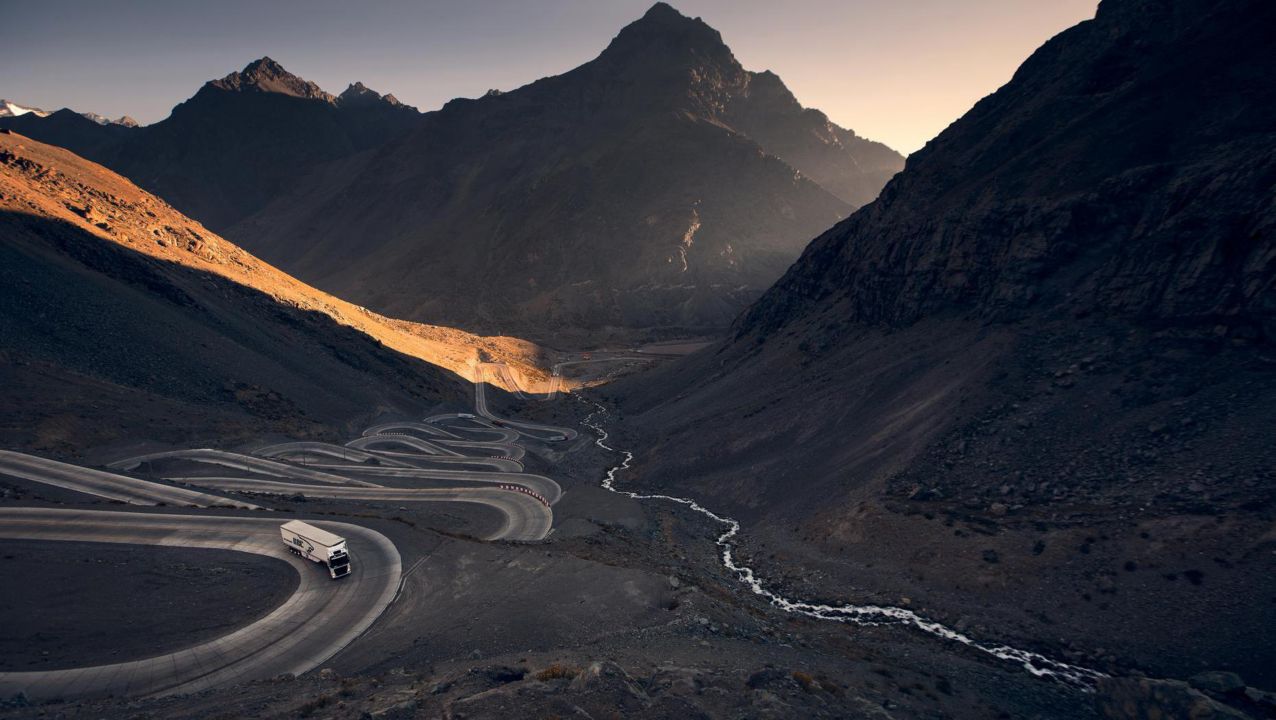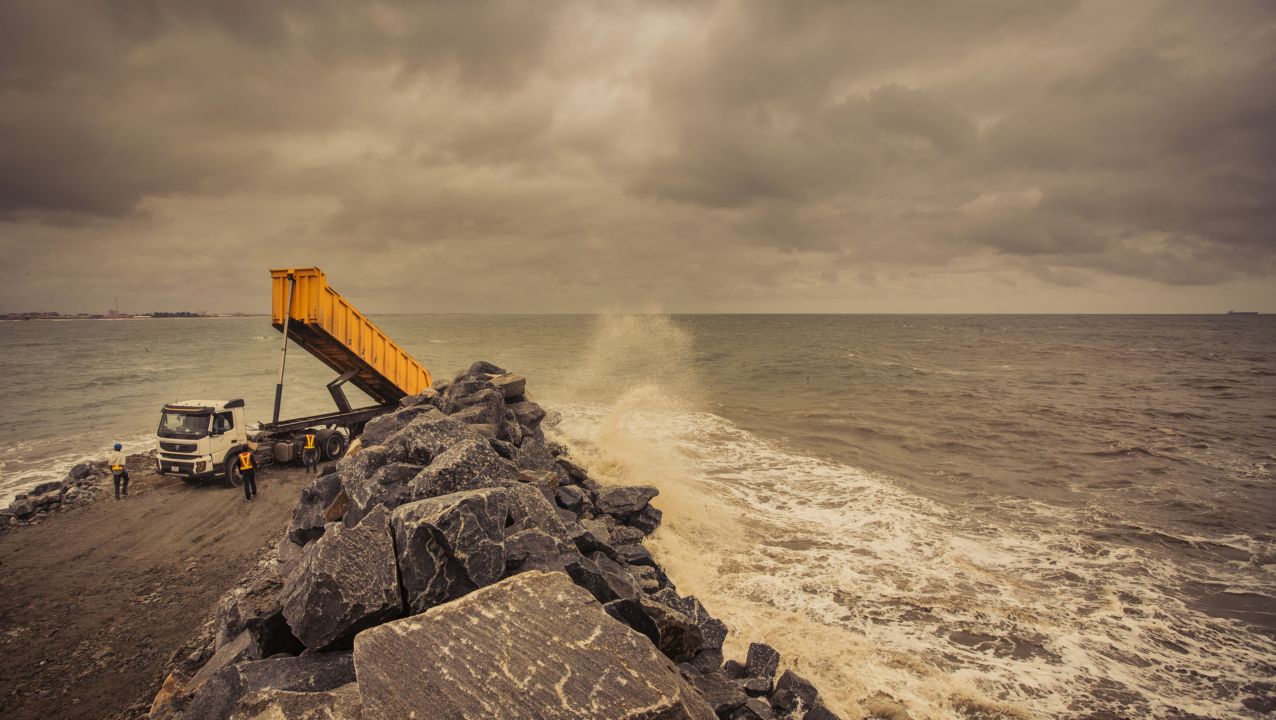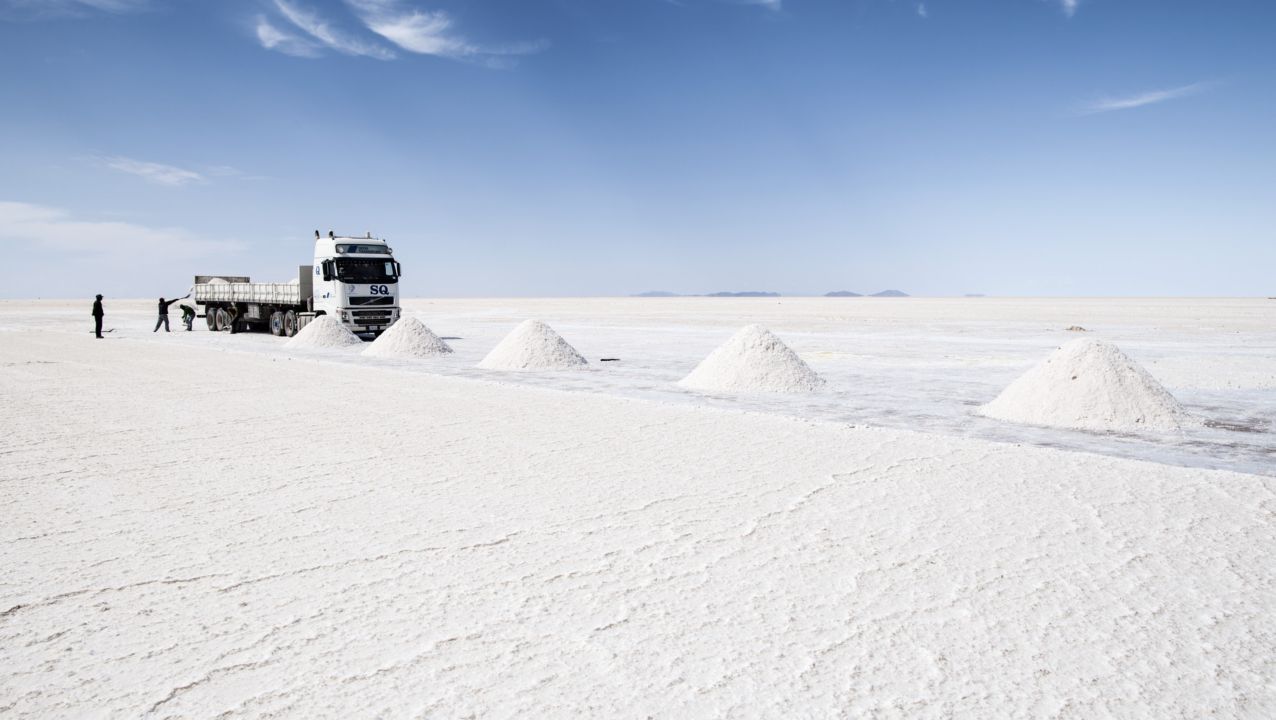For nearly 20 years, Nikolai Goncharov has lived in Russia’s biggest region, Yakutia. He has spent ten of these years driving trucks for Transotdelstroy (TOS), a freight company based in Lensk.
“Mud is our problem and bad roads,” Nikolai says, adding jokingly: “We don’t have roads here, we just have a direction.”
Today, Nikolai’s assignment is to take concrete plates from a port in Peleduy to a construction site in Chayanda. There, Gazprom, Russia’s natural gas giant, is developing a gas deposit. The destination is not far, some 120 km away, but getting there is tricky as a large part of the route is on dirt road with huge puddles and pits.
“Here, only trucks like this one can work: heavy duty, off-road,” says Nikolai, sitting in the cab of his Volvo FMX 460 tractor with a 6x6 axle configuration. He has been driving it for just a few months after nearly ten years behind the wheel of other Volvo models. “It’s a good truck, a robust one.”
As the truck is being loaded at the port, Nikolai points to the river Lena behind him.
“Lena is the artery of life for Yakutia. All cargo is transported mostly on the river, both upstream and downstream.”
When navigation is open in the summer, it is a busy time here, as there is no other way to deliver loads to many parts of Yakutia. Trucks haul cargo delivered on the Lena from ports to destinations across the region, often driving on dirt roads that turn into mud every time it rains.
Nikolai remembers driving on a dirt road turned to mud by the rain a few years back.
“After the rain, we had to go up a steep clay hill, and the trucks wouldn’t. We were struggling with it for a while, but in vain. So we lived in our trucks for two days, waiting for drier weather. The rain stopped, the wind came and dried up the road. Only then were we able to drive.”
Yet occasions like that are still rare, he explains, with Volvo off-road trucks suited for the worst conditions. In winter, when the Lena freezes over, the road workers build the “snow road” through the forest all the way up to Ust Kut.
“We get frost, that’s no kidding,” Nikolai says. “It gets as low as minus 40 or minus 45 degrees. Sometimes we even experience minus 50 degrees. So what? Volvo endures it alright.”
Experience and prudence help Nikolai to stay safe on the difficult Yakut roads. He knows these puddles almost by heart, which side of them is deep. When the truck approaches a puddle on its way from the port, Nikolai shares some tips.
“It’s not too big, but still, you can’t drive over it at a high speed. You need to slow down and shift to a lower gear to be able to pass it carefully.”
We don’t have roads here, we just have a direction.
Still, when roads look more like mud, even the utmost care and experience can’t always save drivers from trouble. On the dirt road, Nikolai experiences a minor accident as a stone gets stuck between the wheels. He gets out of the cab, examines the stone, gets a sledge hammer and breaks it into smaller pieces, which fall off.
“A stone could damage and cut a tyre, and then the tyre could blow out,” Nikolai explains back in the cab. “I was lucky as I was able to break the stone with the sledgehammer, and it came out. There are cases when you have to take off a wheel, to deflate it to be able to remove a stone.”
Further down the dirt road, another truck is parked, with a driver anxiously pacing around it. Nikolai stops his truck, gets out of the cab, walks to him and they talk for a while. Once back, he says that the driver needs towing but he couldn’t help as his Volvo is fully loaded. But overall, with road conditions as they are, driver solidarity is vital, Nikolai notes.
“If there’s a need, we help each other. This is how it is on the road.”
After a few kilometres, Nikolai stops the truck to take a short break and make tea.
“The beauty, unspoiled nature and clean rivers attract me most of all to Yakutia,” he says, looking around.
A native of Kemerovo region in South Western Siberia, Nikolai came to Yakutia to visit his sister and stayed for good, fascinated by the region’s nature and its drier climate, which makes even extreme cold temperatures in the winter appear more bearable.
The abundance of wildlife also fascinates Nikolai about Yakutia.
“You can catch various kinds of fish here, like pike, perch and Siberian salmon. And once I saw a female bear with little bears. I’ve seen rabbits, too. I’ve seen foxes, I’ve seen elks. This is a wild area, animals are running around, and people are working next to them. We live side by side.”
Soon the truck leaves the dirt road for proper asphalt. After a few kilometres, there is a truck-tractor in the ditch at the side of the road.
“The driver must have fallen asleep at the wheel,” Nikolai says. “The asphalt road is a bit relaxing for drivers, and they lose concentration,” he adds.
Nikolai waves to another Volvo driver from TOS, who is returning from his assignment. He says he likes working for the company and for his boss, Stanislav Khamaganov, who makes sure that his drivers have work all the time so that the trucks don’t stand idle.
The assignment is done, and Nikolai is back in Peleduy, a village where many of the TOS trucks and drivers are stationed in summer.
He says he misses his wife, two daughters and three granddaughters, who all live in Lensk, while he is stationed here and only occasionally gets a chance to go home. Being away from his family is an unavoidable part of his job.
“I come home and I see that my granddaughters have grown a bit, they’ve learned something new. But who am I doing this job for, if not for my family, for the wellbeing of my family?” he notes.
Transotdelstroy (TOS)
Owner: Stanislav Khamaganov
Number of employees: 90
History: The company was formed 14 years ago.
Major customers: Gazprom, Rosneft, Sclumberger
Total number of vehicles: 283
Total vehicle fleet: 60 (whereof Volvo trucks:30)
Main load: Construction materials and components for gas and oil extraction.
The Truck: Volvo FMX 460 tractor with a 6×6 axle configuration. Trailer: Russian trailer from NARZ Company with 55 t capacity. Assignments: Concrete plates from Peleduy port to construction sites in Chayanda area.


